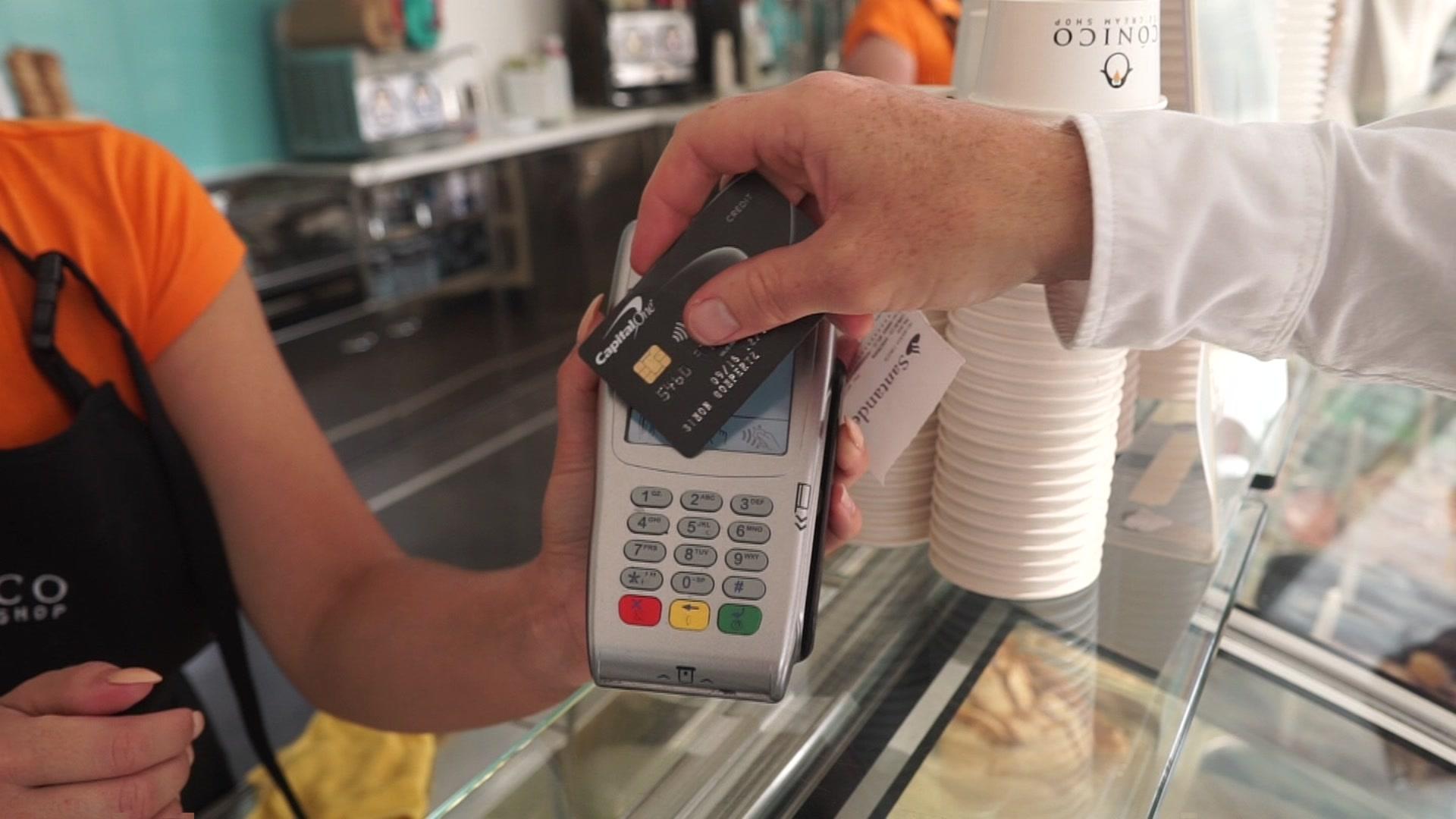Tourist pound now down at close to just one dollar
- Published
- comments
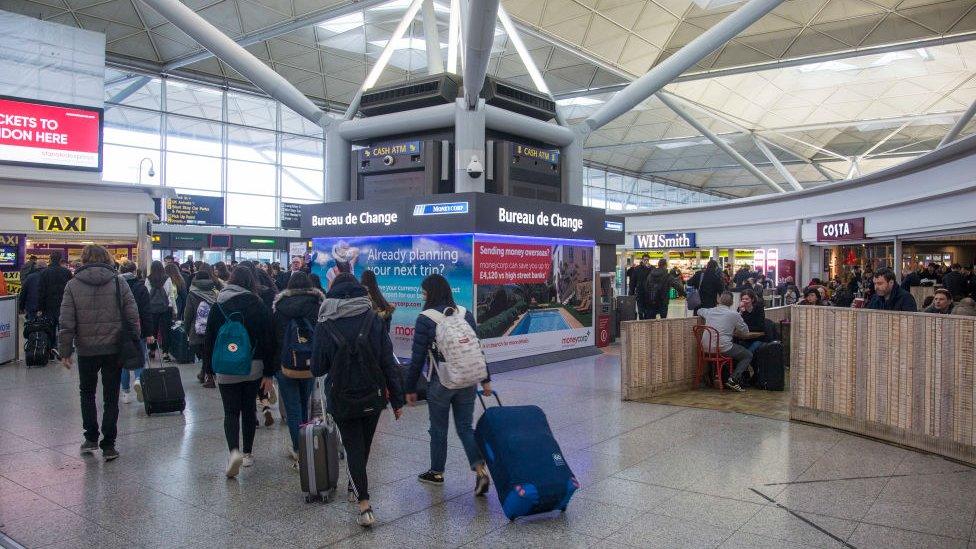
Travellers at some UK airports are barely being offered one US dollar for each of their pounds, following a month of Brexit uncertainty.
Those exchanging pounds at the UK's biggest airport, Heathrow, are finding as little as $1.05 coming back across the counter.
Since 16 April the pound has fallen by 11.77% against the US dollar.
In places, sterling buys less than a euro, with tourists being offered just 92 cents for every pound.
Against the dollar, the pound is now at its weakest since April 2017, although it has recovered slightly since Theresa May won her vote of confidence.
In March 2008 the pound was briefly worth more than $2.00.
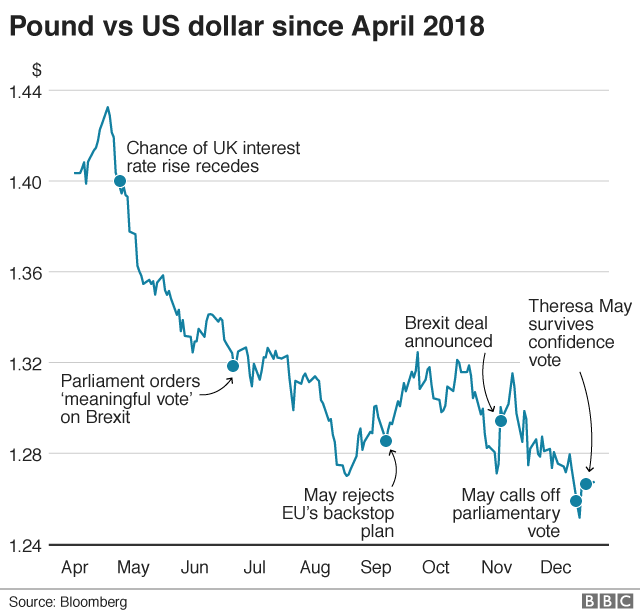
While there are some other factors behind the drop in the pound's value, such as the receding chances of an interest rate rise, most experts accept that the politics of Brexit are chiefly to blame.
"Over the last couple of months... we've seen several developments in Brexit negotiations, MP resignations and more recently a leadership challenge which have all sparked significant turbulence for the pound," said Ian Strafford-Taylor, the chief executive of currency traders FairFx.
Currency dilemma
Changing money at a port or airport is the most expensive way of doing so, and there are usually much cheaper deals online.
The best deal on offer on Friday was $1.23 for one pound.
Tourist rates are also more expensive than official exchange rates, as they take into account the costs of providing bureaux de change.
But the weakness of the pound leaves anyone thinking of going abroad next year with a dilemma: Should they buy their currency now, or wait, in the hope that the pound will recover?
"It's impossible to predict how foreign exchange rates will change in future, especially with volatility around Brexit and other economic events," said Nathan Best, UK commercial director at Travelex.
"The best customers can do is keep an eye on rates and convert at a rate they feel comfortable with.
One option for customers who are wary of foreign currency volatility is to split their currency purchases to reduce risk. Customers can choose to buy some of their currency before their trip with a preferred rate, and then buy the remaining currency closer to, or during, the trip."
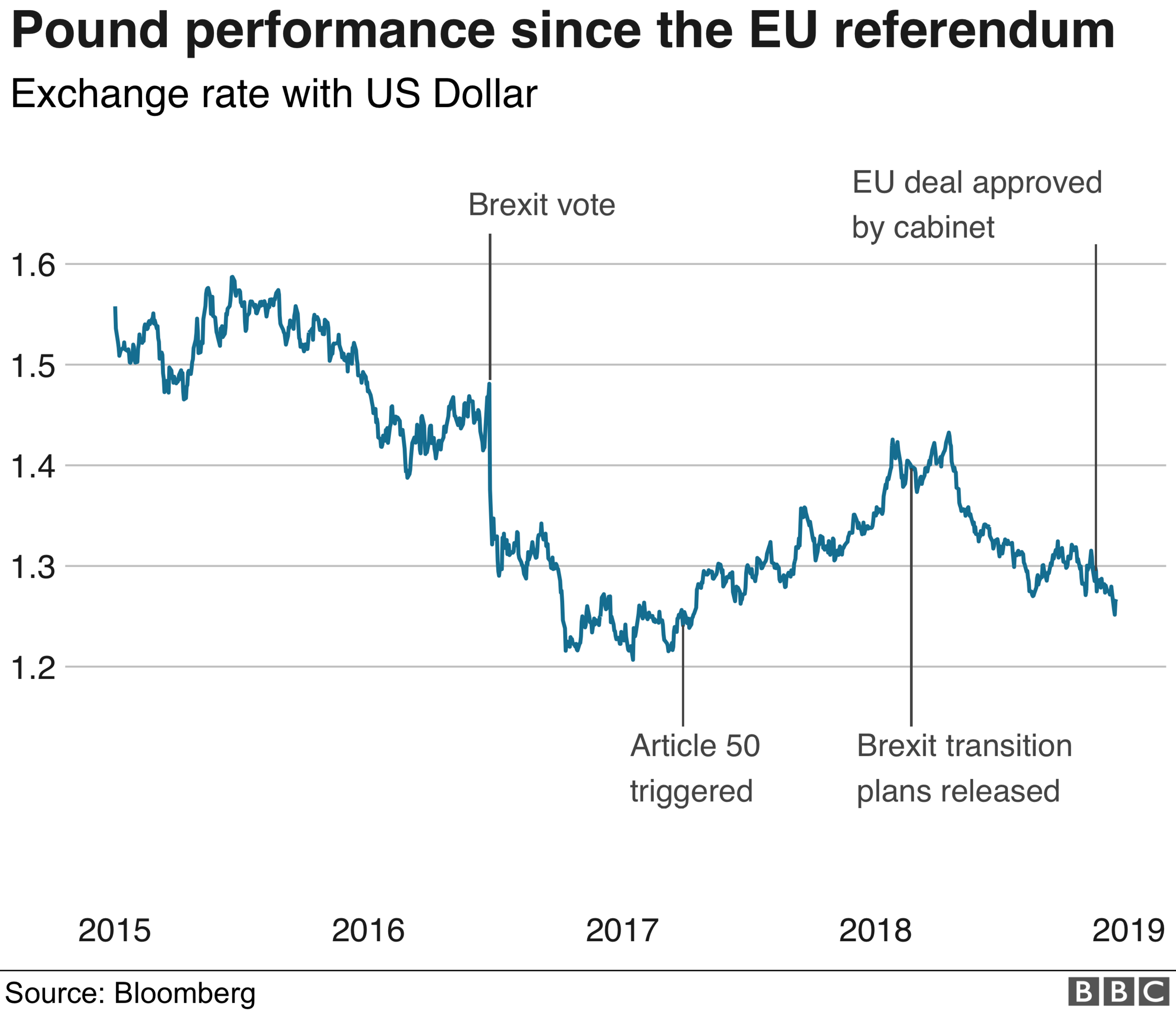

So how do you get the best deal on your tourist money?
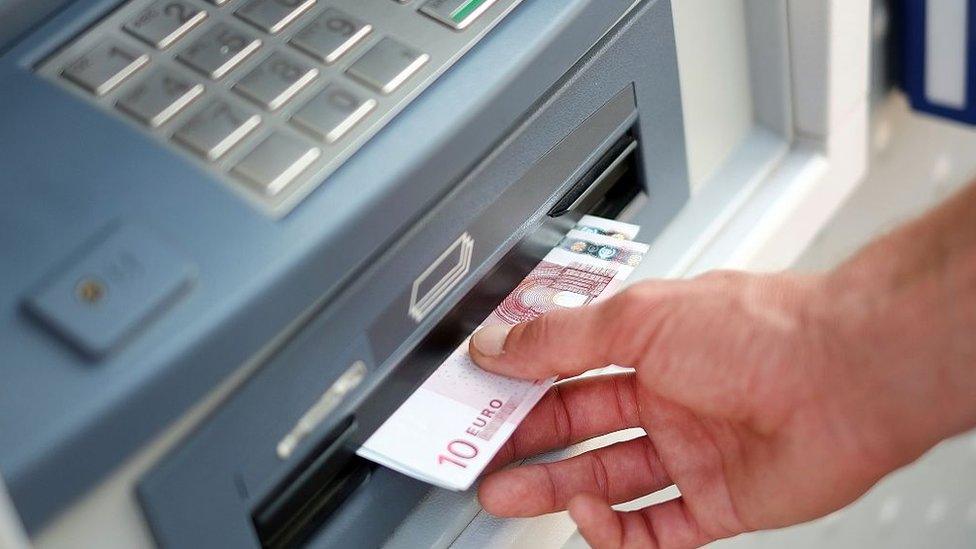
Top tips to help you get the most from your travel cash
Shop around for a rate: There are lots of comparison websites available to find out the best rates, both online and on the high street.
Avoid buying cash at the airport: If you need some currency to take with you, Emma Grimster from Travel Supermarket says "you could end up throwing away money" if you don't plan ahead - particularly if you get your cash from the airport.
Use an overseas travel card: Getting a travel credit card that doesn't charge any transaction fees to get cash out of an overseas cash machine is the cheapest way of getting currency, according to analysis from Money Saving Expert.
Use a pre-paid travel card: Many providers allow you to load a card with money before you travel, locking-in an exchange rate. Such cards include FairFX, Revolut and WeSwap.
Buy half now and half later: If you think the pound may go up or down significantly before your holiday, Helen Saxon of the website Money Saving Expert says you can always hedge your bets. "If you've bought half now and the rate goes down i.e. you get less dollars to the pound, then at least you've got half at the higher rate, and similarly if the rate goes up, again you're getting half at the higher rate."
Know your charges: It's not exactly the most exciting bit about going on holiday, but being clued up about the charges involved with withdrawing from an ATM in another country is the best way to avoid any surprise fees.
Consider the cost of living: Attempting to book a holiday, but not feeling super confident with the changing rates? Emma Grimster says you should think carefully about what board you choose when staying at a hotel. For example, all-inclusive may be a better choice - depending on the country you're visiting.

- Published10 December 2018
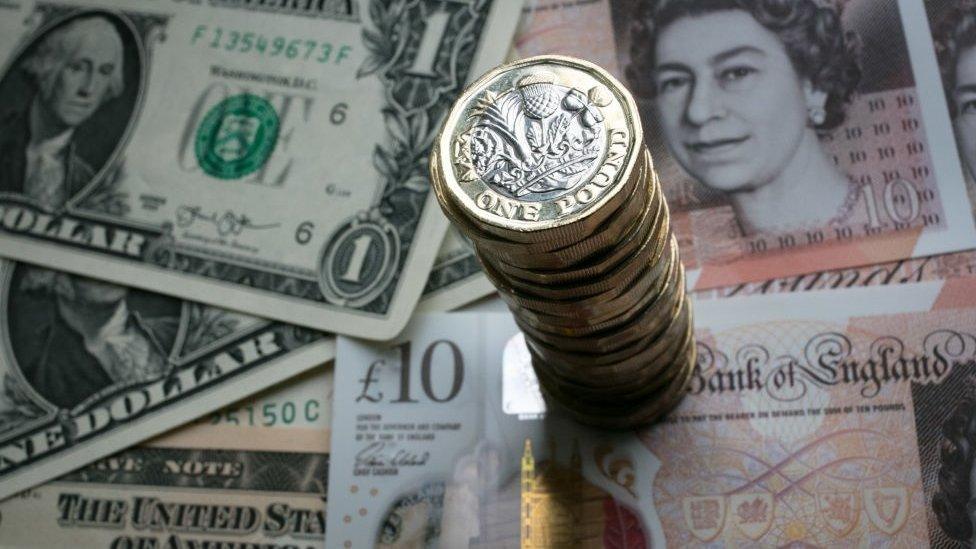
- Published13 November 2018
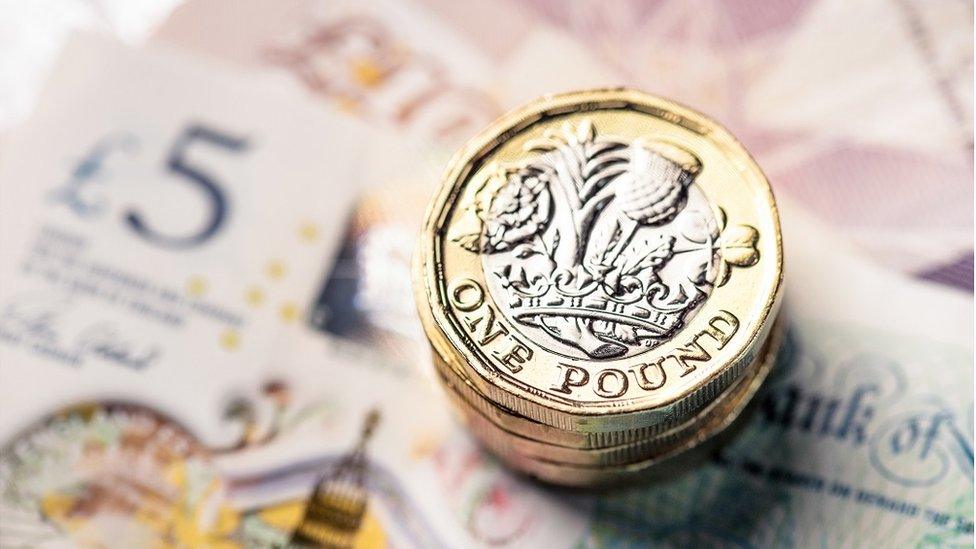
- Published17 July 2019
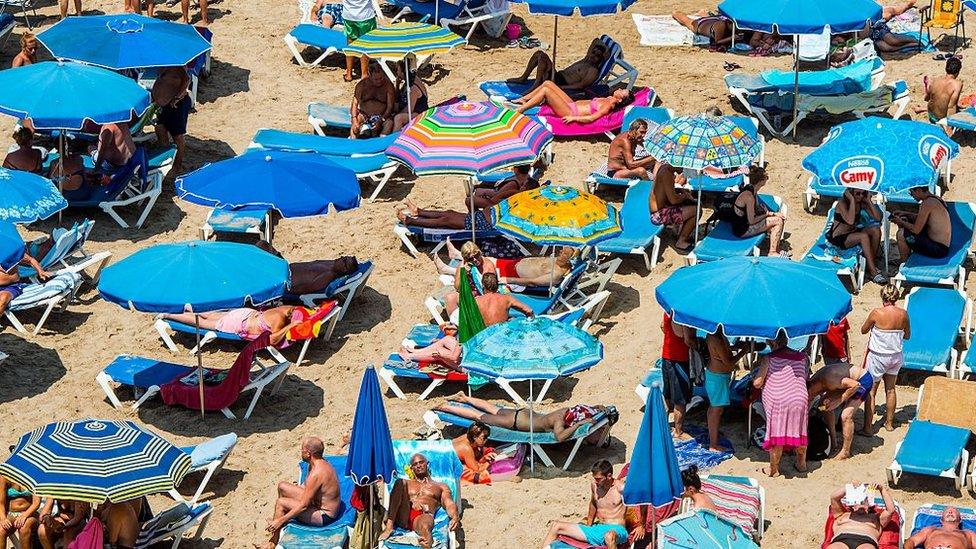
- Published17 July 2018
